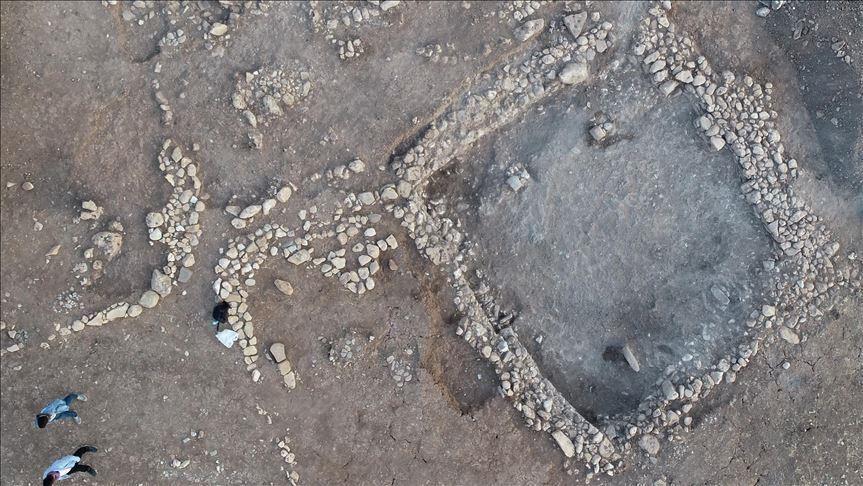
Turkish archaeologists began excavations in an area where 2,000-year-old rock tombs were unearthed and bear resemblance to the discoveries in the ancient site of Göbeklitepe, known as the world's oldest temple.
Şanlıurfa Metropolitan Municipality in cooperation with the Culture and Tourism Ministry carries out the excavations in the Kizilkoyun Necropolis area, where 2,000-year-old rock tombs were discovered.
The excavation, which started near the area where the statue of Balıklıgöl dating to 9500 B.C. is located, created excitement that new discoveries may also be made.
The statue - also known as Urfa Man, 1.80 meters tall and dubbed the “oldest naturalistic life-sized sculpture of a human” - attracts attention with its similarity to the discoveries in Göbeklitepe.
New artifacts are expected to be found to solve the mystery of Göbeklitepe in the excavations that started in the area where some mosaics depicting hunting Amazon queens were found earlier.
Zeynel Abidin Beyazgül, the mayor of Şanlıurfa Metropolitan Municipality, said that the city is an important cultural metropolis as it hosts many civilizations.
He told Anadolu Agency that the excavations around the Kızılkoyun Necropolis will contribute to solving the mystery in surrounding Göbeklitepe.
“Kızılkoyun, one of the most important necropolises of Edessa city, is very rich in terms of tomb sizes and decorations.
“The Balıklıgöl sculpture found around the Balikligol Basin is also related to Göbeklitepe,” he said, adding the ancient site “contains many mysteries”.
“We believe that the excavations we will carry out in the area where artifacts similar to the discoveries in Göbeklitepe have been found will help solve the mystery” in the ancient site.
Beyazgül said that a total of 662 shanty houses were demolished in the area and 61-rock tombs unearthed.
“Şanlıurfa is already preparing for new discoveries, let humanity expect new surprises,” he added.
Göbeklitepe, in the Turkish province of Şanlıurfa, a site declared an official UNESCO World Heritage Site in 2018, was discovered in 1963 by researchers from the universities of Istanbul and Chicago.